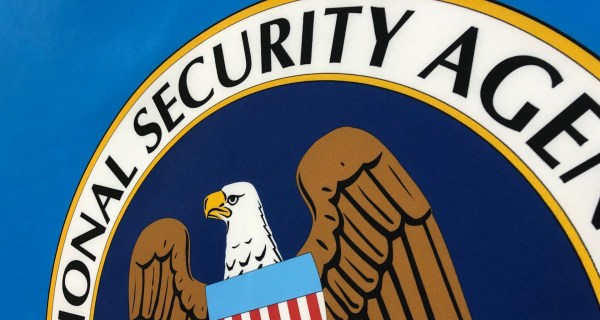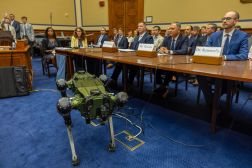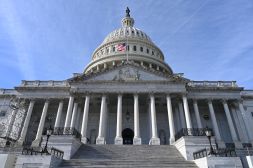Director of National Intelligence James Clapper and National Security Agency Director Gen. Keith Alexander today defended the U.S. intelligence community’s controversial electronic surveillance programs and warned Congress that eliminating the data collection efforts would increase the risk of additional terrorist attacks on U.S. soil.
Whether or not Congress chooses to amend one of the NSA collection programs or eliminate them entirely, the impact would be the same as massive budget cuts from sequestration, Clapper said. “As that happens, we are incurring greater risk,” he said.
The hearing before the House Permanent Select Committee on Intelligence focused on potential changes to the Foreign Intelligence Surveillance Act, known as FISA, and the legal authorities governing NSA’s bulk telephone metadata collection program under Section 215 of the USA Patriot Act.
“Nothing that has been released has shown that we’re trying to do something illegal,” said Alexander, referring to classified documents stolen by former NSA contractor Edward Snowden and that have been made public in drips and drabs by media outlets. “There have been no willful [privacy] violations,” Alexander said, adding he would rather see additional oversight than the elimination of the programs.
But the hearing quickly turned to NSA’s eavesdropping on foreign leaders, with Rep. Adam Schiff, D-Calif., igniting a tense debate about the wisdom of targeting the communications of foreign leaders and going as far as to argue that members of Congress should be notified in advance whenever the intelligence community proposes such an operation.
Schiff’s commentary sparked a contentious reaction from the committee chairman, Rep. Mike Rogers, R-Mich., who said detailed information on the National Intelligence Priorities Framework — an outline of the nation’s intelligence collection priorities — is made available to every member of the House intelligence committee who wants to see it.
“To make the case that somehow we are in the dark is mystifying to me,” Rogers said, characterizing Schiff’s claims the intelligence community was somehow not informing Congress on how they obtain strategic information as “disingenuous.” Members of the committee are “as informed as they choose to be,” he said, including about sources and methods of collection.
The exchange centers around recent media reports in Europe that NSA had not only collected millions of telephone records of European citizens, but had also eavesdropped on the electronic communications of allied heads of state. But Clapper and Alexander fired back, arguing intelligence collection activities targeting the intent and plans of foreign leaders is not only basic to the business of intelligence but something America’s allies in Europe regularly engage in as well.
“Leadership intentions is kind of a basic tenet,” Clapper said. “It’s a fundamental given in the intelligence business” and is critical in determining if what foreign leaders are saying “gels with what’s actually going on,” Clapper said.
But when asked directly if America’s European allies, including Germany, France, Spain and Italy, regularly conduct electronic espionage activities targeting U.S. political leaders, including the president, Clapper did not hesitate when answering.
“Absolutely,” he said. “I have to say that some of this reminds me a lot of [the movie] ‘Casablanca.’ My God, there’s gambling going on here!”
Alexander said media reports had completely misinterpreted the documents upon which they based their news reports. He said the data collected overseas was data the U.S. and its NATO allies collected, implying the European countries in question had cooperated.
“This is not information that we collected on European citizens,” Alexander said. “It represents information that we and our NATO allies collected,” he said, adding it could have originated in many other regions of the world outside of Europe.
Private sector changes
One of the changes currently under consideration by Congress involves mandating private sector service providers store and maintain the metadata currently being collected by NSA. NSA currently collects the data and stores it for up to five years for link analysis — the process of determining a telephone number’s potential link to international terrorism. The data is stored in what Alexander refers to as “a lock box,” and only about 30 analysts at NSA are authorized to query the data.
Congress, however, is considering changes to the law that would shift responsibility for storing the data to the private sector and lessen the retention requirement from five years to three.
NSA’s deputy director, Chris Inglis, said there are many potential architectures that could support the collection requirements under Section 215 of the Patriot Act, but all would need to provide for rapid searching, accurate results, as well as the security and privacy of the data.
“It needs to be available in a timely way,” Inglis said. “Minutes count. Agility counts.”






